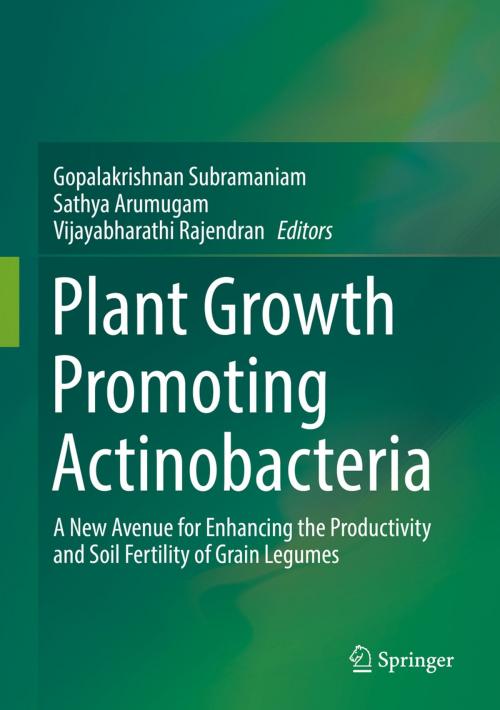Plant Growth Promoting Actinobacteria
A New Avenue for Enhancing the Productivity and Soil Fertility of Grain Legumes
Nonfiction, Science & Nature, Science, Biological Sciences, Microbiology, Technology, Agriculture & Animal Husbandry| Author: | ISBN: | 9789811007071 | |
| Publisher: | Springer Singapore | Publication: | June 2, 2016 |
| Imprint: | Springer | Language: | English |
| Author: | |
| ISBN: | 9789811007071 |
| Publisher: | Springer Singapore |
| Publication: | June 2, 2016 |
| Imprint: | Springer |
| Language: | English |
Global yields of legumes have been relatively stagnant for the last five decades, despite the adoption of conventional and molecular breeding approaches. The use of plant growth-promoting (PGP) bacteria for improving agricultural production, soil and plant health has become one of the most attractive strategies for developing sustainable agriculture. Actinomycetes are bacteria that play an important role in PGP and plant protection, produce secondary metabolites of commercial interest, and their use is well documented in wheat, rice, beans, chickpeas and peas. In order to promote legumes, the general assembly of the UN recently declared 2016 the “International Year of Pulses.” In view of this development, this book illustrates how PGP actinomycetes can improve grain yield and soil fertility, improve control of insect pests and phytopathogens, and enhance host-plant resistance. It also addresses special topics of current interest, e.g. the role of PGP actinomycetes in the biofortification of legume seeds and bioremediation of heavy metals.
Global yields of legumes have been relatively stagnant for the last five decades, despite the adoption of conventional and molecular breeding approaches. The use of plant growth-promoting (PGP) bacteria for improving agricultural production, soil and plant health has become one of the most attractive strategies for developing sustainable agriculture. Actinomycetes are bacteria that play an important role in PGP and plant protection, produce secondary metabolites of commercial interest, and their use is well documented in wheat, rice, beans, chickpeas and peas. In order to promote legumes, the general assembly of the UN recently declared 2016 the “International Year of Pulses.” In view of this development, this book illustrates how PGP actinomycetes can improve grain yield and soil fertility, improve control of insect pests and phytopathogens, and enhance host-plant resistance. It also addresses special topics of current interest, e.g. the role of PGP actinomycetes in the biofortification of legume seeds and bioremediation of heavy metals.















